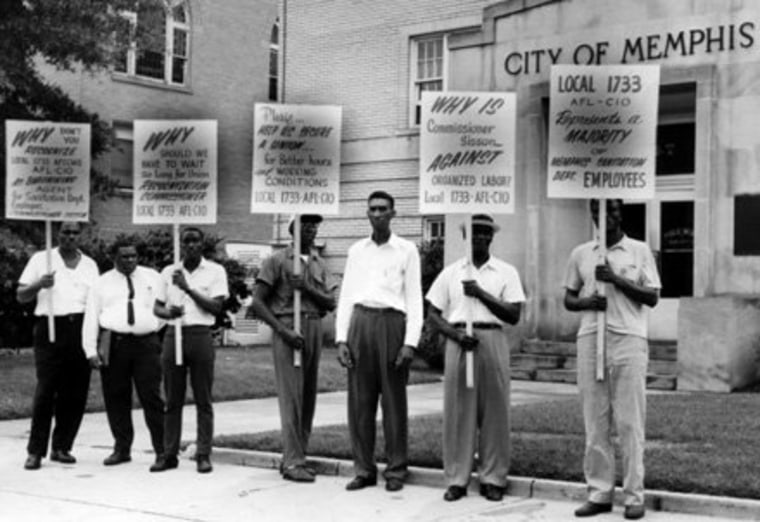People can and do argue about whether Martin Luther King, Jr., would have supported this or that contemporary political cause. One thing we can be quite sure of is that in his day, Dr. King supported union rights. He was assassinated in Memphis on April 4, 1968, when he was in town for a labor strike by the city's sanitation workers.
Arnie Alpert writes today in New Hampshire's Concord Monitor:
King spoke out consistently against "right-to-work" laws like the one adopted in last year's legislative session and vetoed by Gov. John Lynch. "Right-to-work "provides no 'rights' and no 'works,' King said. "Its purpose is to destroy labor unions and the freedom of collective bargaining."
In the Madison, Wisconsin, Capital Times, John Nichols argues that Republican efforts to strip union rights today is basically a Southern import:
The fierce opposition seen during 2011 to attacks on collective bargaining rights in Wisconsin, Indiana, Ohio and other Northern states confirmed that the anti-union “momentum” is not coming from workers in those states. They know that restraints on public-sector unions and right-to-work laws have harmed the quality of wages and benefits, undermined workplace safety, and limited the voice of working people in the public spheres of states such as Alabama and Mississippi. They know today, as the Rev. Martin Luther King Jr. did in 1968, that embracing the race-to-the-bottom mentality favored by Wall Street speculators and hedge-fund managers prevents the arc of history from bending toward economic and social justice.
If you're looking for a way to think about Dr. King today, spend a little time with the story of him helping the Memphis sanitation strike. It's worth considering, again, that "I am a man" was in part a labor argument, and that labor arguments are economic justice for all.
